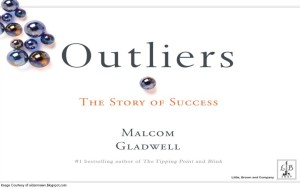The decolonization period in Africa marked huge growth in the African film industry. Individuals such as François Mitterand led efforts that encouraged filmmakers and producers to integrate cultural, political and economic development of the continent into African film production.
Due to the fact that the majority of films made before the countries´ decolonization were racially charged, the most prominent directors that came out of the 1980s were those who used film as a political instrument to correct the stereotypes that the West had depicted about Africa and its people. This includes directors such as Ousmane Sembene and Oumarou Ganda whose list of movies include “Black Girl”, “Mandabi”, “Xala”, “Moi, un noir”, “Cabascabo” and many more .
Examples of booming Film Industries in Africa today include Nigeria and South Africa, Egypt, Burkina Faso, Kenya, Algeria, Morocco and Somalia. Various actors from these countries have also gained international fame. This includes “Monster” actress, Charlize Theron from South Africa, “Maleficent” actor Sharlto Copley, “Captain Phillips” actor, Barkhad Abdi from Somalia, “12 Years A Slave” actors Chiwetel Ejiofor a Briton of Nigerian descent and his co-star, Lupita Nyong’o from Kenya and so many more.
In spite of the successes, the African cinema industry lacks support and investment, which is much needed in order to support the industry in all its spinoffs, including film festivals. These festivals and events alike act as awareness-raising mechanisms. They also foster an increase in distribution of films which will permit the African film industry to attract a lot more genuine interest from the international film going and investing community.
In many African countries, the media and entertainment industries are expected to grow at 5% GDP per capita until this year. Investments in the film industry of Africa have the potential to help African countries attain sustainable development. Nigeria’s estimated annual revenue from its film industry is $590 million USD. An average of 50 films are released by Nigeria on a weekly basis.
Africa’s music industry is also flourishing. MTV’s first Africa Music Awards in 2008 was a major discovery moment for the world, with stellar performances featuring nominees from Nairobi, Johannesburg, Lagos, and Kinshasa. The continent is home to global musical stars like Salif Keïta from Mali, Hugh Masekela, Dave Matthews and Lucky Dube from South Africa, D’banj from Nigeria, Oliver “Tuku” Mtukudzi from Zimbabwe, Senegalese singer Akon, K’naan, a Somali Canadian, famous choral group Ladysmith Black Mambazo from South Africa and so many more. However, due to rampant piracy and the lack of formal tracking establishments, it is hard to calculate how much the music industry is worth on the continent. That being said, informal statistics from Nigerian entertainment executives show that album sales reached $30 million in 2008, three times more than 2005. If formal systems were set up, and piracy was taken a little more seriously, who knows how large the industry would be.
With so much potential in these industries, do you think that Governments and leaders should get more involved and invested in order to propel the African entertainment industry to the next level?






